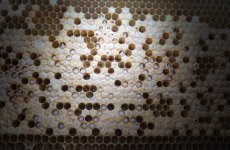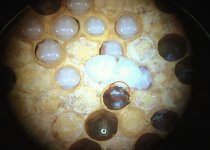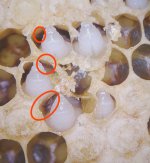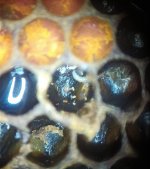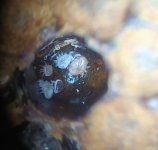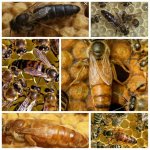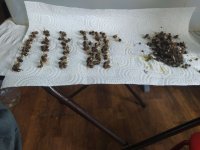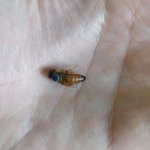Imagine if you didn't have to treat bees for mites like in the good old days? Or reduce the amount of treatment to once a year?Yes, we have that trait here in NZ also, just, not enough. It's only fairly recently it has become talked about as opposed to normal VSH where the larva is destroyed.
I think you would reduce your costs of buying medicines that cost as much as a Boeing wing and there would be savings in labor costs, and your free time could be spent on more enjoyable activities when the bees do this work for you.
Treatment with chemicals leads over time to tick resistance to them. And in the long term this is a road to a dead end...



